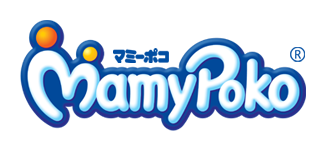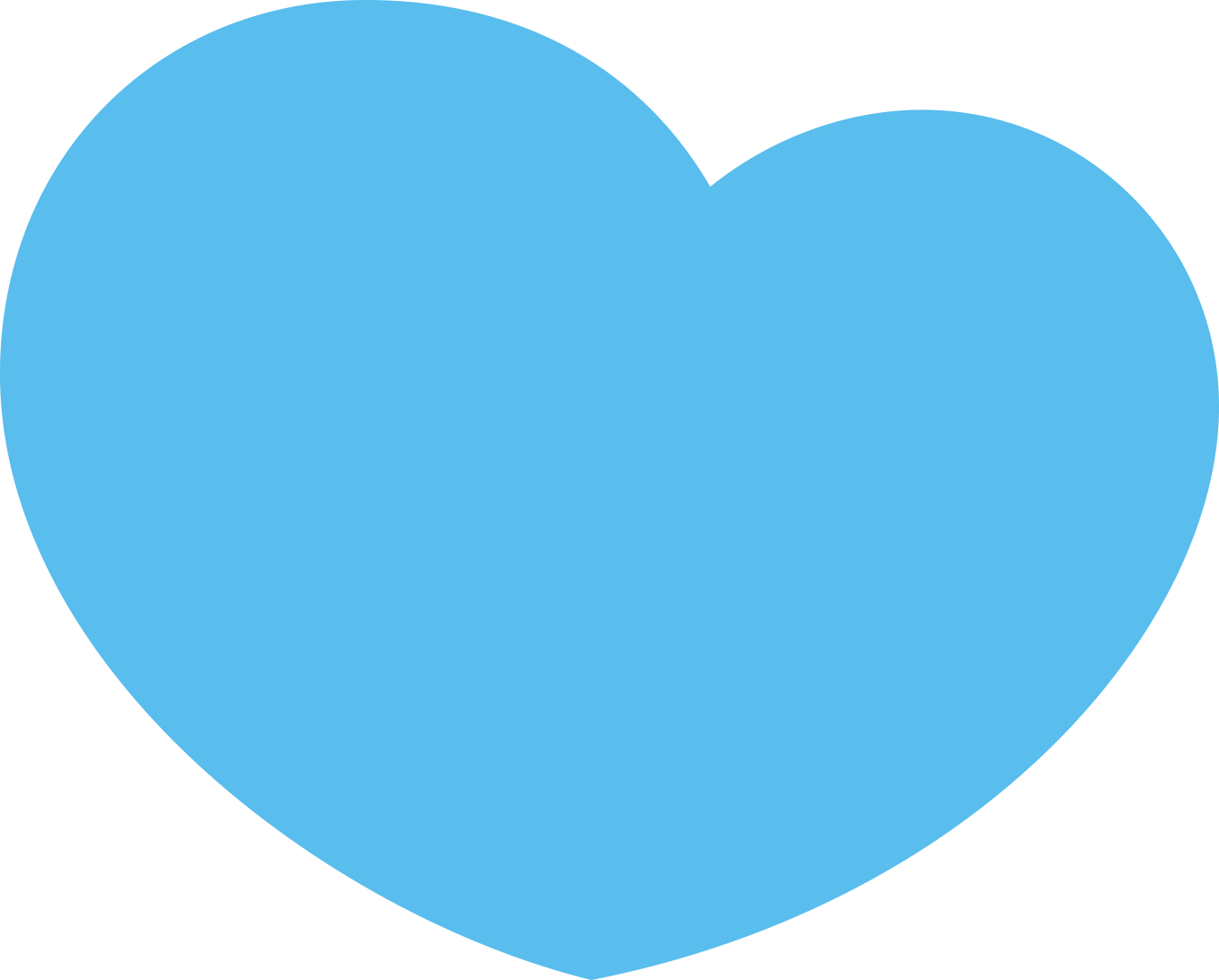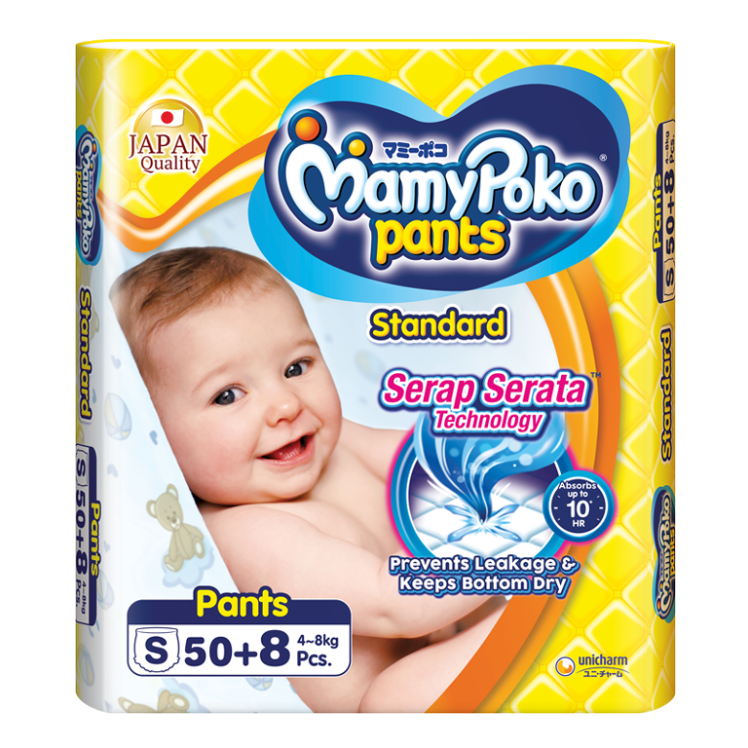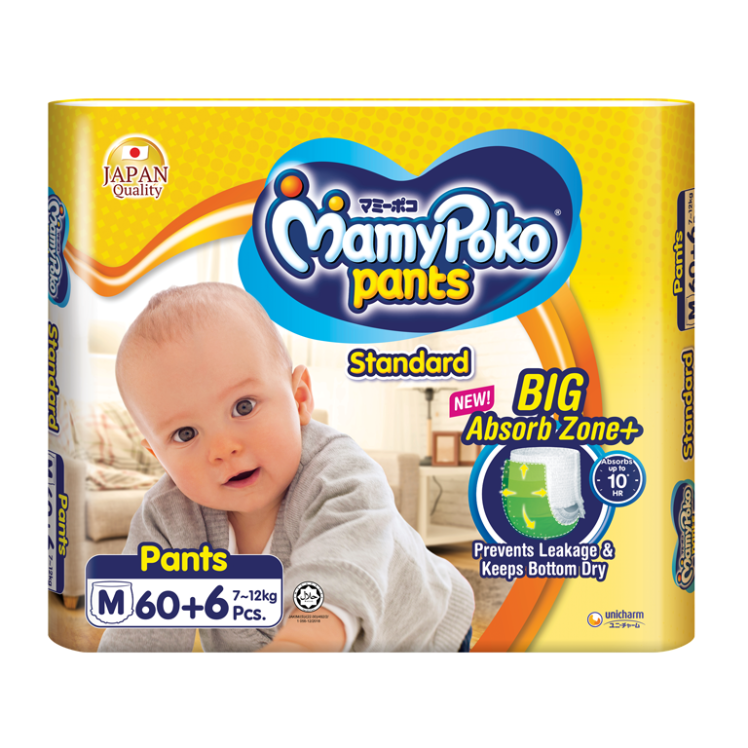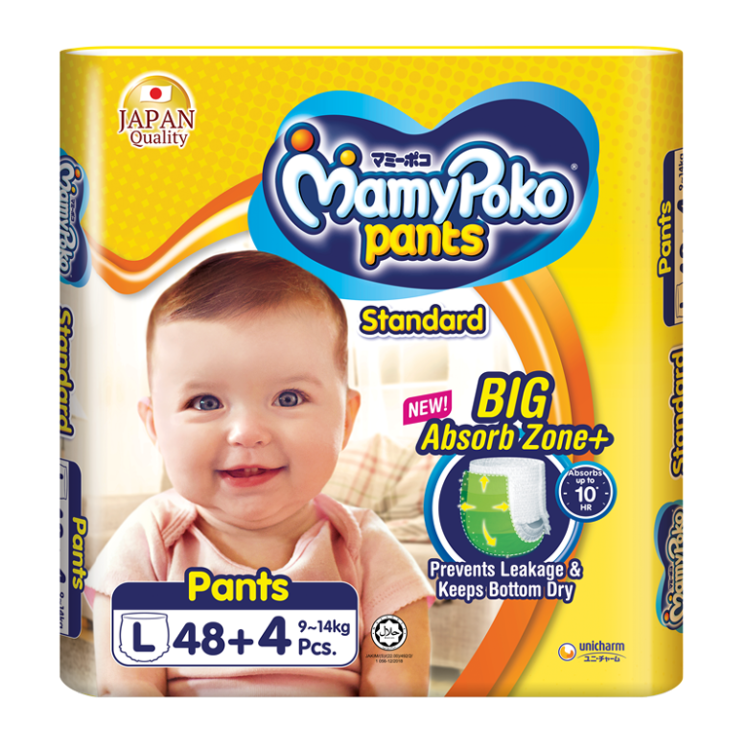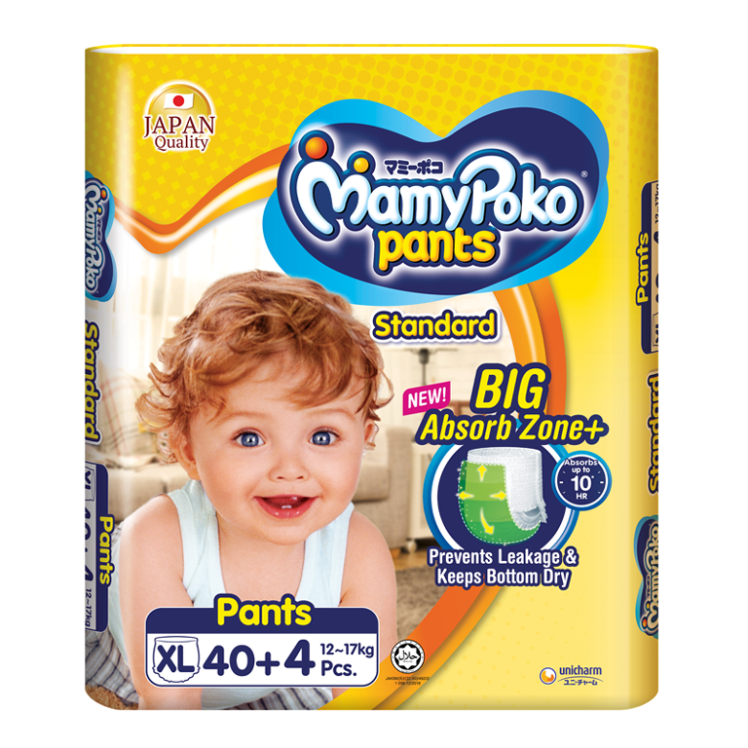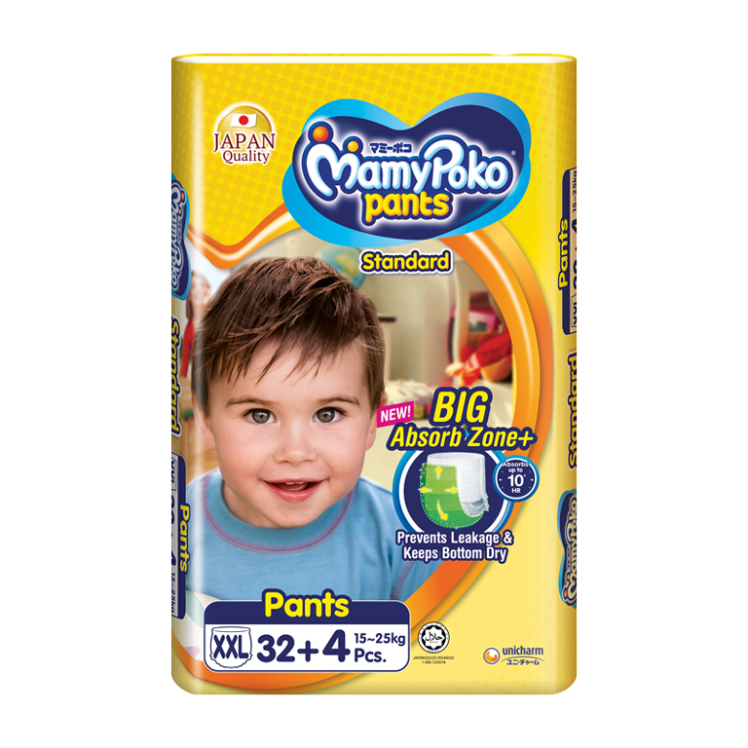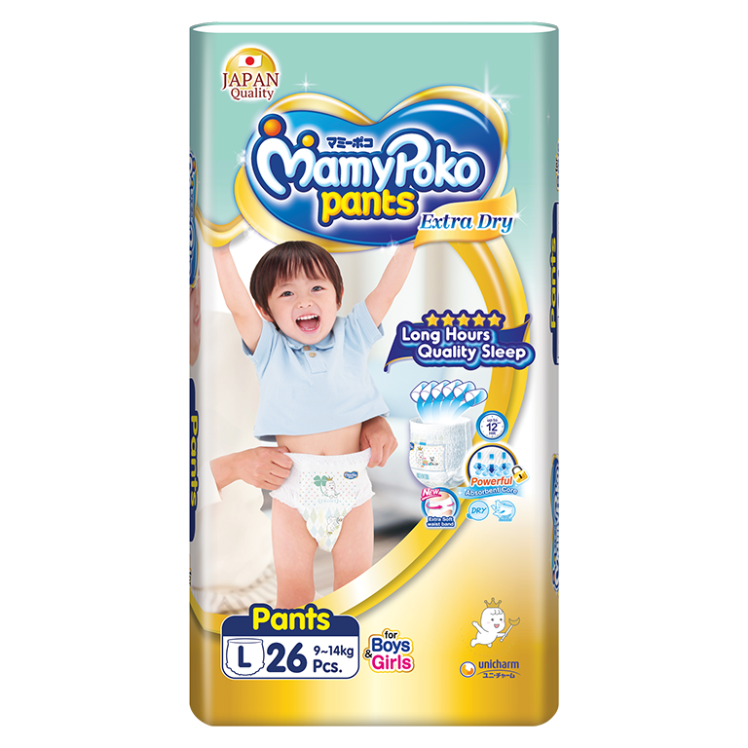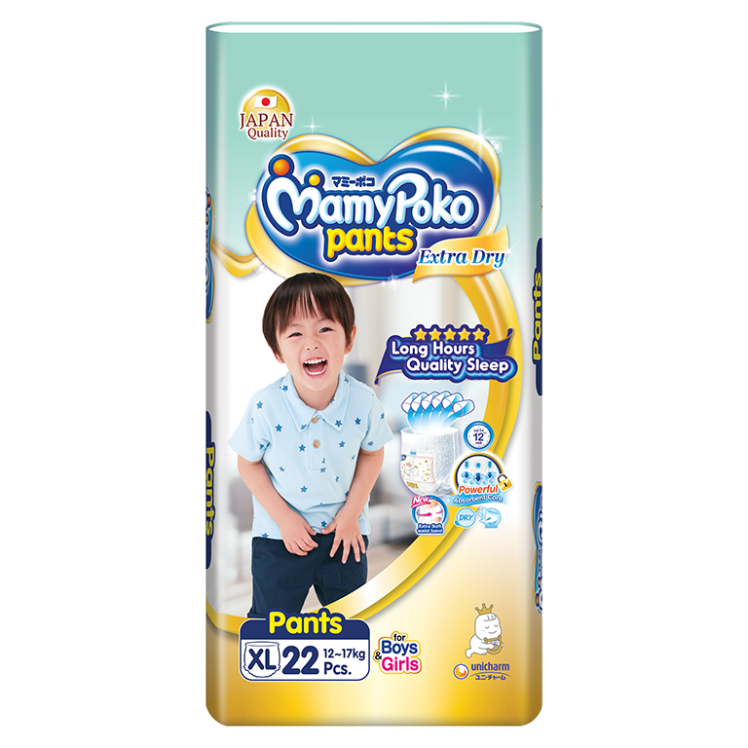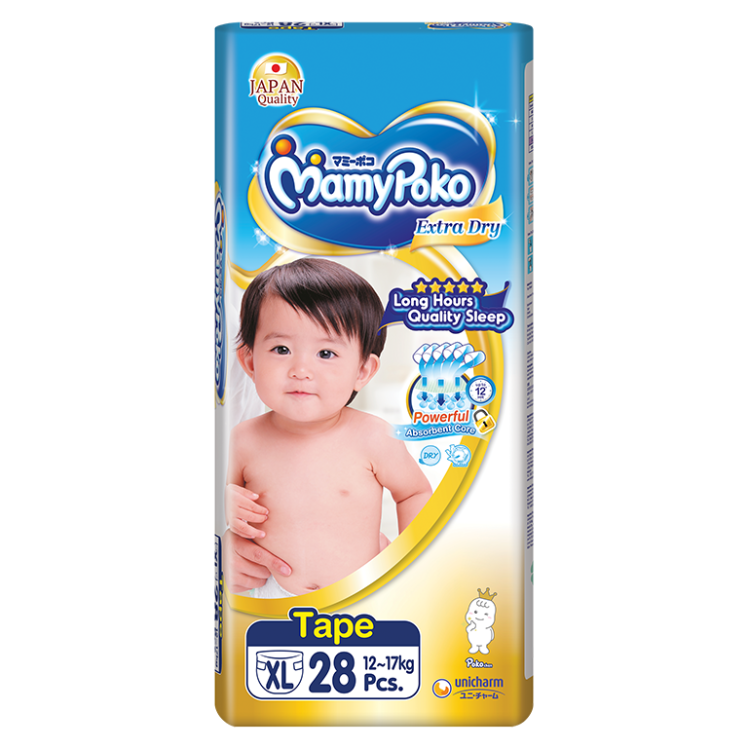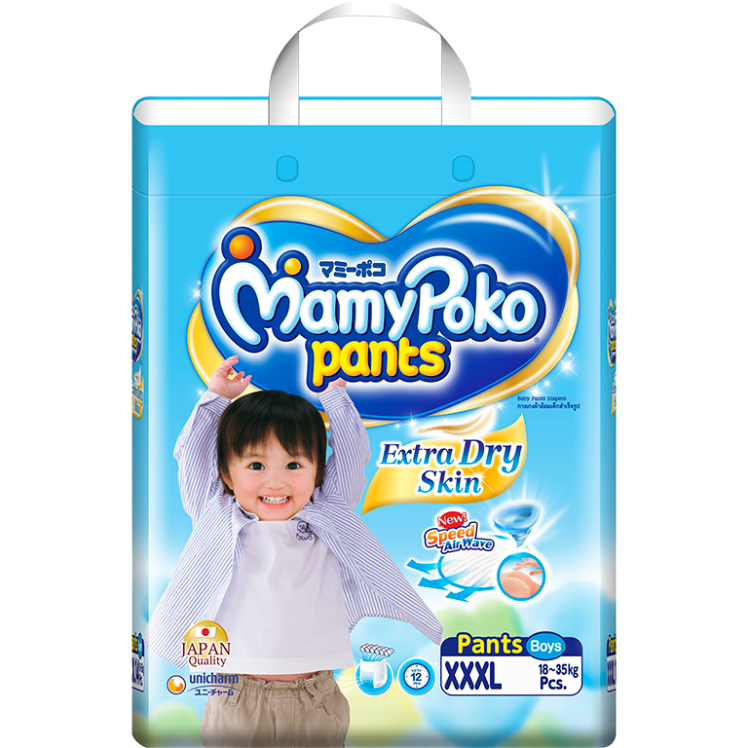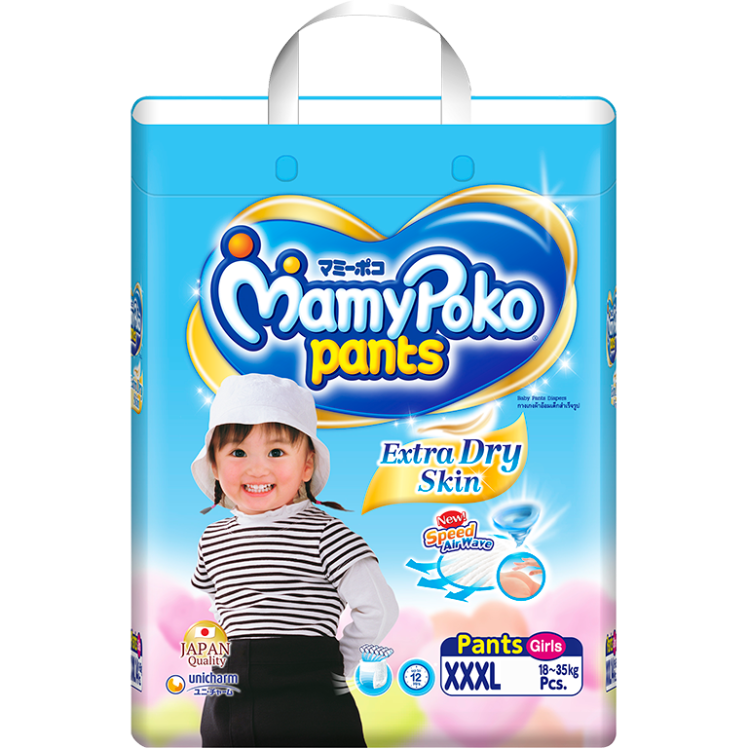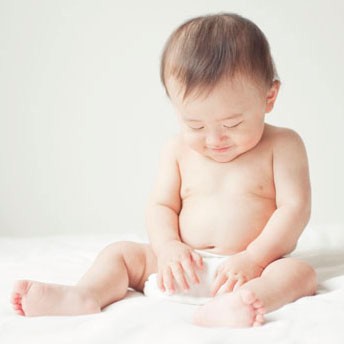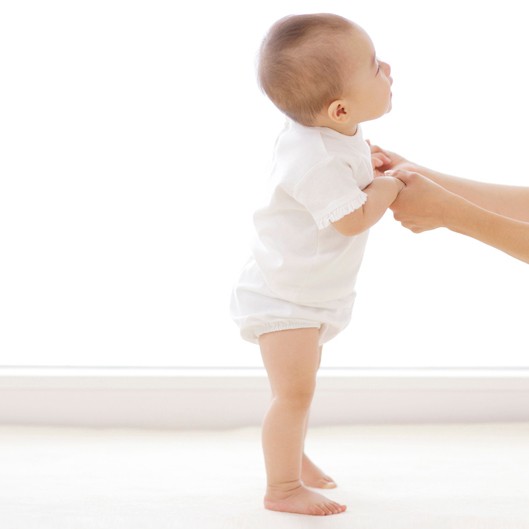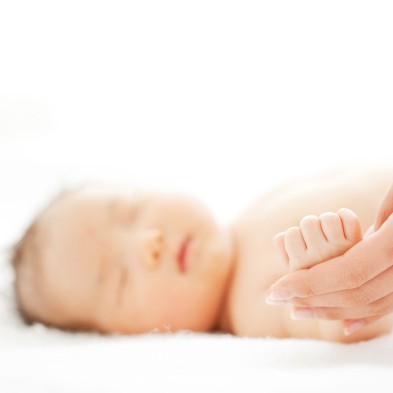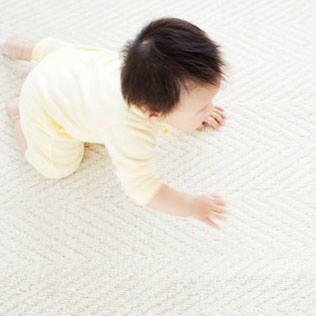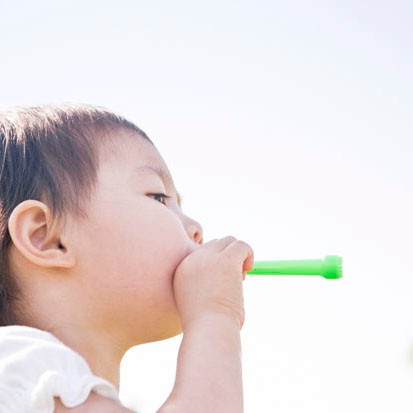Sleeping Stage
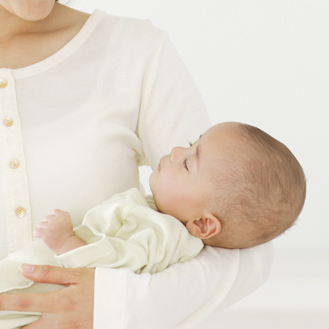
Since baby is always lying down and his bowel movements are runny, they may leak out from the back.
Bowel movements are still runny
Development Approximate Weight: 4~8kg
Body overall
He'll drink lots of breast milk or formula and take on a more baby-like roundness.
Eyes
He'll start to follow moving things with his eyes, and little by little his range of vision will grow wider.
Neck
The neck muscles will gradually grow stronger, and he'll slowly become able to hold up his own head and control his movements.
Hands
He'll put his fingers in his mouth and become able to hold toys.
Back & waist
In addition to his arms, legs, and neck, the muscles in his back are also developing.
If you lay him on his belly, he'll soon be able to raise his neck up just fine.
This is what is meant by "holding the head up."
Heart
He'll stare intently at you, give a big smile when you soothe him, and start to show a wide range of other expressions.
Skin
Until about 2 months after birth, the hormones baby got in his mother's womb cause a lot of sebum to be secreted, so baby's skin is basically oily. Once those hormones wear off, skin suddenly becomes dry. Since baby's skin is thin, it doesn't retain moisture well and is easily damaged, so it's quite delicate. If large amounts of sweat, milk, or drool remain on dry skin, baby will be prone to develop a skin irritation. His skin may quickly turn red or break out in a rash, or he may develop a heat rash or eczema.
So it's important to keep the skin clean and also to moisturize it.
Breastfeeding, formula
Baby times his breathing to match his mama's, and he gets really good and efficient at drinking. Nursing times become more regular, with feedings now 3-4 hours apart, and the amount baby drinks in one feeding also increases. Some mamas may worry when the amount baby drinks in one feeding varies, but as long as he is gaining weight, there's no problem! However, if baby is keeping his mouth on the breast but just taking occasional sips, limit feedings to 20 minutes each and let baby get hungry before the next feeding.
This style of drinking will give a rhythm to feedings.
Bath
About 1 month after birth, he'll graduate from the baby bathtub. Now he can get in the bathtub with mama or papa! If the temperature is too low in the changing room or bathing area, or if the water is too hot, baby may start to cry. Being unaccustomed to a large bathtub may also make him feel insecure and get fussy. If that happens, just hold baby gently but firmly. While his neck and body are still unsteady, wash him in a securely held position such as on mama's knee or on a mat. Baby gets dirty from sweat and such even in places you can't see, such as behind the ears, the neck, the underarms, and constricted areas like the wrists and ankles. Be sure to wash and rinse him well.
So before getting in the bath, be sure to check and adjust the temperature of the bathroom and the water.
Clothing changes
Because baby moves a lot, he is more susceptible to heat and less susceptible to cold than adults are. So if it feels a little cold to you, it's just right for baby. At this age, baby also starts to move his arms and legs more, so his shirt tails and pants legs often hike up and expose his skin. Overalls or one-piece garments with the legs separated are convenient at this age. Clothes that allow baby's hands to stick out from his sleeves are also good. In bed, undergarments alone are fine. After baby has nursed or cried, his body perspires a lot. Put your hand on his back and if it's sweaty, change his undergarment to keep him from catching a chill.
So you'll need to be careful not to overdress baby.
A baby's day
Once a nursing rhythm is established, baby will sleep longer periods at a time, and his total sleep time will also get longer. Once he can hold his head up, give him opportunities to get in touch with nature by carrying him outside or taking him for a walk in a stroller. Experiencing things like sunshine, wind, and the smell of the trees will provide good stimulation. However, remember that baby still does not have much stamina or immunity, so avoid crowds and keep outings short. Don't forget to keep the sun off baby as much as possible by using an awning on the stroller, a hat, or mama's umbrella, etc.
So start out close to home at first, and enjoy taking walks without overdoing it.
Once he can hold his head up and turn over, sitting up is not far behind!
update : 19.09.2017
Our favorites feature uses your browser's cookies. To use this feature, please enable cookies. If you are using Safari on your iPhone or iPad, please turn off the Private Browsing Mode. If you clear the cookie, you also clear the Favorite that you chose.

